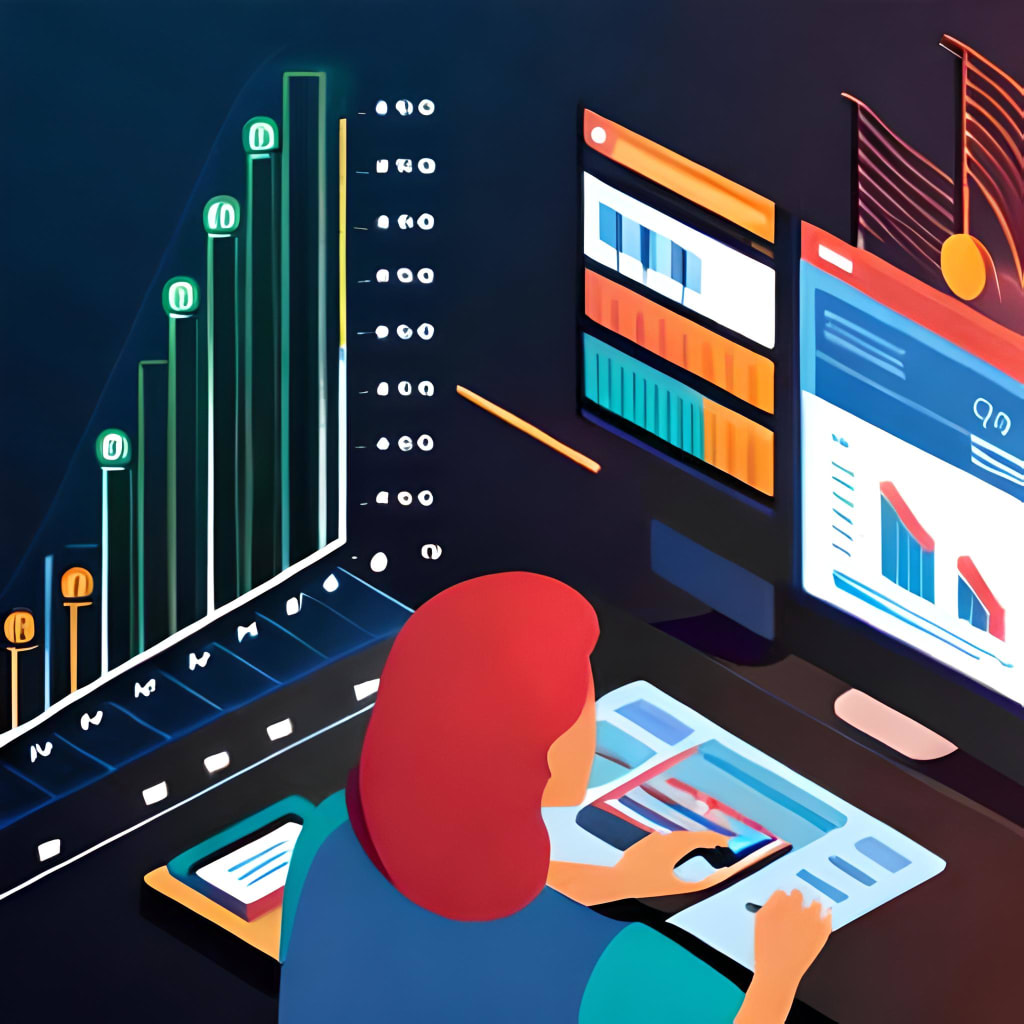How to Improve Your Data Analysis Skills
Master the Art of Extracting Insights from Data

Data analysis is a critical skill in today's data-driven world. Whether you're a business professional, researcher, or student, having strong data analysis skills can significantly enhance your decision-making abilities and boost your career prospects. This article aims to provide practical tips and guidance on how to improve your data analysis skills and become a proficient data analyst.
Introduction
In this digital age, we are inundated with vast amounts of data. However, data alone is meaningless without the ability to extract valuable insights from it. This is where data analysis comes into play. By mastering data analysis skills, you can uncover patterns, trends, and correlations within datasets, enabling you to make informed decisions and gain a competitive edge. Let's explore the steps you can take to enhance your data analysis capabilities.
1. Importance of Data Analysis Skills
Data analysis skills are highly sought after in various industries, including finance, marketing, healthcare, and technology. Employers value professionals who can derive meaningful insights from data and use them to drive strategic initiatives. Developing strong data analysis skills can open up numerous career opportunities and increase your earning potential.
2. Understanding the Basics of Data Analysis
2.1 Defining Data Analysis
Data analysis refers to the process of inspecting, cleaning, transforming, and modeling data to discover useful information, draw conclusions, and support decision-making. It involves using various techniques, tools, and methodologies to extract insights from raw data.
2.2 Types of Data Analysis Techniques
There are several types of data analysis techniques, including exploratory data analysis, descriptive analysis, inferential analysis, and predictive analysis. Each technique serves a specific purpose and helps in uncovering patterns and relationships within data.
3. Developing a Data Analysis Mindset
To become a proficient data analyst, it is essential to cultivate a data analysis mindset. This involves fostering curiosity, critical thinking, and attention to detail.
3.1 Curiosity and Critical Thinking
Approaching data analysis with curiosity allows you to ask the right questions and explore the underlying factors affecting your data. Critical thinking helps you assess the reliability of data sources, identify biases, and validate your findings.
3.2 Attention to Detail
Data analysis requires meticulous attention to detail
to avoid errors and ensure the accuracy of your analysis. Paying attention to small nuances in the data can reveal important insights that might otherwise go unnoticed.
4. Enhancing Technical Skills for Data Analysis
To excel in data analysis, you need to develop technical skills that enable you to manipulate and analyze data effectively.
4.1 Proficiency in Statistical Tools
Statistical tools, such as Excel, R, and Python, are indispensable for data analysis. Learning how to use these tools proficiently will empower you to perform complex analyses, generate visualizations, and derive meaningful insights.
4.2 Programming Languages for Data Analysis
In addition to statistical tools, programming languages like SQL, MATLAB, and SAS are commonly used for data analysis. Familiarizing yourself with these languages will expand your capabilities and make you more versatile in handling diverse datasets.
5. Acquiring Domain Knowledge
To excel in data analysis, it's crucial to acquire domain knowledge related to the industry or field you're working in. Understanding the specific challenges, variables, and trends within your domain will enable you to ask relevant questions, identify meaningful patterns, and interpret the results accurately.
6. Practical Application of Data Analysis
Data analysis skills are best developed through practical application. Here are the key steps involved in the data analysis process:
6.1 Identifying Business Problems
Begin by identifying the business problems or research questions you want to address through data analysis. Clearly defining your objectives will help you focus your analysis and ensure the outcomes are aligned with your goals.
6.2 Collecting and Cleaning Data
Collect relevant data from reliable sources and ensure its quality by cleaning and preprocessing it. This involves removing duplicates, handling missing values, and transforming the data into a format suitable for analysis.
6.3 Analyzing and Interpreting Data
Apply appropriate data analysis techniques to uncover insights and patterns. Use visualization tools to present the results effectively and draw meaningful conclusions. Interpret the findings in the context of your objectives and make data-driven recommendations.
7. Continuous Learning and Improvement
Data analysis is a constantly evolving field. To stay ahead, it's essential to embrace continuous learning. Keep up with the latest trends, techniques, and tools in data analysis through online courses, workshops, and attending industry conferences. Engage with the data analysis community to exchange ideas and learn from others' experiences.
8. Utilizing Data Analysis Tools and Resources
Several tools and resources are available to aid your data analysis journey.
8.1 Online Courses and Tutorials
Platforms like Coursera, Udemy, and DataCamp offer a wide range of online courses and tutorials to enhance your data analysis skills. These courses cover various topics, from introductory to advanced levels, and provide hands-on experience with real-world datasets.
8.2 Data Analysis Software
Utilize data analysis software like Tableau, Power BI, or SPSS to streamline your analysis process and create visually compelling dashboards and reports. These tools provide user-friendly interfaces and advanced functionalities to simplify complex data analysis tasks.
8.3 Networking and Collaborating
Engage with the data analysis community through forums, social media groups, and professional networking platforms. Collaborating with fellow data analysts and sharing insights can broaden your perspective and accelerate your learning.
Conclusion
Improving your data analysis skills is a journey that requires dedication, practice, and continuous learning. By following the steps outlined in this article, you can enhance your ability to extract meaningful insights from data and make data-driven decisions. Remember to stay curious, pay attention to detail, and leverage the available tools and resources. Embrace the power of data analysis, and you'll unlock a world of possibilities.
FAQs
Q1: Can I improve my data analysis skills without a background in statistics?
Yes, you can. While a statistical background can be helpful, there are various resources and courses available that cater to individuals with different skill levels. Start with foundational courses and gradually build your expertise.
Q2: How long does it take to become proficient in data analysis?
The time required to become proficient in data analysis depends on several factors, including your prior knowledge, learning pace, and the depth of skills you aim to acquire. With consistent effort and practice, you can see significant progress within a few months.
Q3: Are there any free resources available to learn data analysis?
Yes, there are numerous free resources available, such as online tutorials, YouTube channels, and open-source software. Take advantage of these resources to gain knowledge and hands-on experience at no cost.
Q4: What programming languages are commonly used in data analysis?
Python and R have widely used programming languages for data analysis due to their extensive libraries and statistical capabilities. SQL is also commonly used for handling and querying large datasets.
Q5: How can data analysis skills benefit my career?**
Data analysis skills are highly valued in today's job market. They can open up a range of career opportunities in fields such as data science, business intelligence, market research, and consulting. These skills can also enhance your problem-solving abilities and decision-making skills, making you a valuable asset in any industry.
Incorporating data analysis skills into your repertoire will empower you to extract valuable insights from complex datasets, enabling you to make informed decisions and drive meaningful outcomes. Embrace the power of data analysis, and embark on your journey to become a proficient data analyst.
About the Creator
Enjoyed the story? Support the Creator.
Subscribe for free to receive all their stories in your feed. You could also pledge your support or give them a one-off tip, letting them know you appreciate their work.






Comments
There are no comments for this story
Be the first to respond and start the conversation.